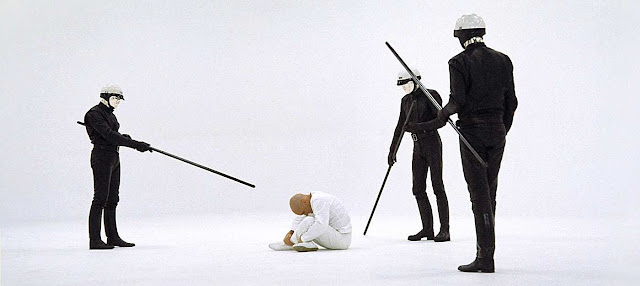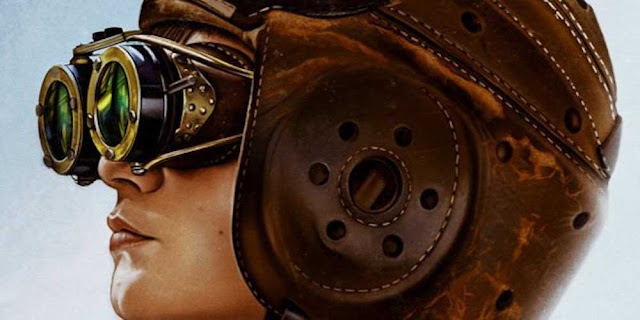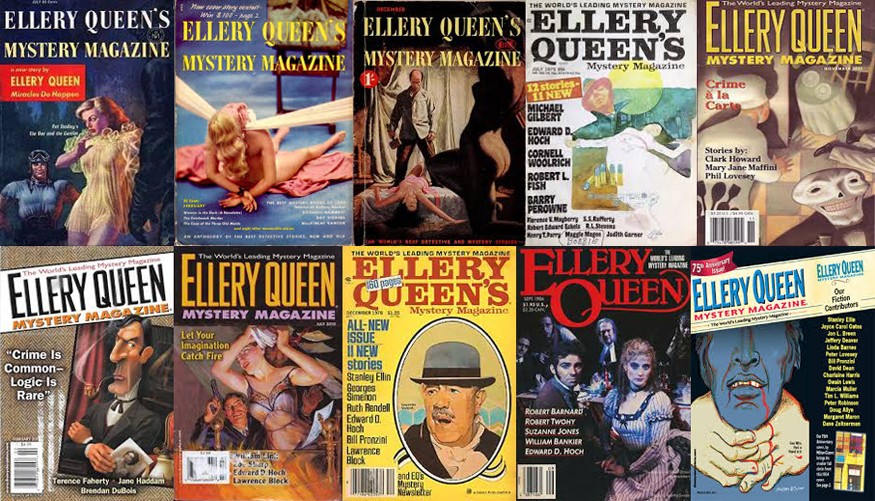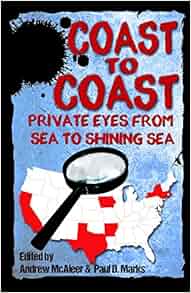Well, I'm unsophisticated enough to admit I love a good whodunit. Most of my favorite mysteries are traditional whodunits--and most of them were written many years ago, back when more people took whodunits more seriously. When I come across a new whodunit that tells an absorbing and believable story, plays by the rules, and still manages to deliver some surprises at the end, I'm both delighted and impressed. And, partly because I love well-done whodunits so much, I get seriously irritated by ones that don't play fair, ones that make things too easy for the detective (and the writer). Here are some of my pet peeves. I won't claim they're anything more than pet peeves, won't try to argue I'm objectively right. I'm simply going to list some things that get on my nerves. Maybe they get on your nerves, too.
- Unrealistically chatty suspects and witnesses: Most law-abiding people feel some obligation to answer a police officer's questions. Even so, and even if they're not guilty of the crime, they might withhold facts they find embarrassing or painful, as well as facts they think might arouse false suspicions. If a private detective or an amateur sleuth is asking the questions, people are under no obligation to answer. Some people might be so talkative (or so lonely) they welcome any opportunity to spill secrets, but it's hard to believe many people would be that way. Wouldn't most people question the detective's motives, worry about getting in trouble or offending someone, or simply not want to spend the time? Private detectives and amateurs who try to bully people are out of line--they don't have the right to demand that anyone say one word to them. If a private detective or an amateur sleuth showed up at my door, asking for information about a friend or family member, I'd have some questions of my own to ask, and I wouldn't reveal anything unless I got satisfactory answers.
- Overheard conversations: During the course of a story, a detective might catch a lucky break or two. But detectives should solve crimes by detecting, not by watching clues fall into their laps. If the detective just happens to overhear two suspects conversing and picks up vital information, I'm skeptical; if the detective overhears more than one helpful conversation, I usually stop reading. (An overheard conversation is more palatable if the detective goes to some trouble to overhear it--goes to a restaurant where two suspects always meet for lunch on Tuesday, puts on a wig, poses as a server, practices a French accent, and so on. Then I'll attribute any information the detective picks up to ingenuity and effort, not to dumb luck.)
- Convenient coincidences:They're as bad as overheard conversations. The detective, too frazzled to keep deducing, goes for a run in the park and happens to spot two suspects sitting on a bench, holding hands and locked in intense conversation--but both have sworn they don't know each other, have never met. Now the detective can confront them with their lies and get them to break down. Or the detective decides to leave a party, puts on a suspect's coat by mistake, and finds a conclusive clue in the pocket. The detective hasn't earned the insights such incidents yield, so I'm not impressed--I'm incredulous and more than a little annoyed. As Ronald A. Knox says in "A Detective Story Decalogue," "No accident must ever help the detective." It was a good rule back in 1929, and it's still a good rule nearly a century later.
- Culprits picked out of a hat: All the suspects have means, all have opportunity, and all have motives--very different motives: One will inherit a fortune from the victim, one is an angry ex-husband, and one is a business associate who went bankrupt when the victim didn't honor a contract. Several clues point to each. In the last scene, one case-cracking clue proves the would-be inheritor is the culprit, and all evidence about the victim's unhappy marriage and unethical business practices is irrelevant. If the final clue had been different, the culprit would have been different. That's one way of surprising the reader, but it's an easy, artless way. When I read that sort of whodunit, I feel as if all the effort I've devoted to weighing the evidence in ninety percent of the story was wasted. I thought I was working on a puzzle, but it turns out I was working on three separate puzzles. The puzzles don't interlock, and only one was completed--only one mattered. Any pleasure I might have found in being surprised is eclipsed by irritation.
- Loose ends: As the previous pet peeve made clear, I'm not a fan of mere red herrings. I prefer whodunits in which all clues, no matter how much the detective may misinterpret them at first, ultimately point directly or indirectly to the solution. But if writers can't resist the temptation to throw a mere red herring into the plot, they should at least have the decency to explain it at the end. Years ago, I read a well-written whodunit that had an intriguing plot and some interesting, complex characters--but also had one big problem. I mentioned the book to an old college friend who also loves mysteries. "I think you might enjoy it," I said, "except for one thing." "I know," she said. "I've already read it. You never find out who the baby's father was!" Yes, that was the problem. The murder victim was a young, single woman, and the autopsy revealed she was several months pregnant when she died. So the protagonist's initial investigation focused on three men who might have been romantically involved with the victim and might have fathered the unborn child. Eventually, the protagonist realized the motive for the murder had nothing to do with the pregnancy and focused on other suspects. And the writer never bothered to tie up loose ends by saying who the father was. I understand that it's good to end a mystery at a dramatic moment. I know many readers--and many editors and critics--don't have much patience with the old-fashioned scenes in which suspects gather in the parlor to hear the detective go over all the evidence and gradually zero in on the culprit. But I don't think that's any excuse for leaving loose ends dangling--and leaving readers wondering.
- Withholding secrets: Awakened in the middle of the night when the phone rings, the detective listens to what an unidentified caller says, jots down some notes, and goes back to sleep. Later, the detective looks through the victim's appointment calendar, takes out the notes from the phone call, underlines something, and nods sagaciously. But the reader doesn't learn anything about what was said in the phone call or what was written in the appointment calendar until the final scene, when the detective reveals that the bits of information each yielded connected in a surprising way, making the culprit's identity clear. How can readers keep up when the detective knows things they don't? Golden age writers declare such ploys unacceptable. "The reader must have equal opportunity with the detective for solving the mystery," S.S. Van Dine says in "Twenty Rules for Writing Detective Stories" (1928). Knox agrees: "All clues must be plainly stated and described. The detective must not light on any clues that are not instantly produced for the reader." And the oath taken by members of the Detection Club (including Knox, Agatha Christie, Dorothy Sayers, and E.L. Bentley) asks inductees to "solemnly swear never to conceal a vital clue from the reader."
Do you have pet peeves about whodunits, or about other kinds of mysteries? I'd love to hear them.













































